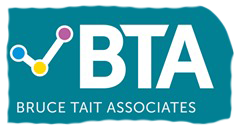17 November 2015 / BTA
Home
/ News & Views
/ Get on Board to develop your career
At a recent talk to Fundraisers in Liverpool, I asked the audience how many of them served on the Board of a charity. Two hands were raised out of an audience of over 60. I wasn’t surprised.
In my 20-year career as a charity Fundraiser and Chief Executive I wasn’t once asked to join the Board of another charity. Within a year of becoming a consultant I’d been asked repeatedly – at one stage I was on the Board of four charities and Chair of two others.
It would be easy to say that it’s the charities’ fault. There is a perception that Board members have to be business people. That they have to be able to give money (we’ve all heard the “Give, Get or Get Off” diatribe). Or that somehow working for one charity would prevent you providing good governance for another.
These are deeply engrained beliefs and, while they aren’t accurate, they have contributed to a narrowing of the makeup of many boards to the extent where, in my opinion, they would have difficulty truly governing a typical charity – diverse, vision-led and funding challenged.
Charity Commission figures tell us that the average age of Trustees in the UK is 57, with 67% aged over 60. I’m going to guess that they are also typically going to be male, middle-class, white and businessmen. And while that is what I am, it’s not typical of what fundraisers are – i.e. predominantly female, cause-driven and far more likely to be ethnically diverse than most charity boards.
We can’t just sit around and wait though. I challenge Fundraisers to take matters into their own hands and find themselves a Board to join. The Board of a charity might think that what they want is a businessman, but when they see a fully-fired up, articulate, confident and experienced fund-getter hoving into view, chances are they’ll set aside their pre-conceptions and bite your hand off. And if they don’t, then they don’t deserve you.
Remember also that this is a two-way street. There is much to be gained from sitting on the other side of the Board table. It gives you a valuable perspective on how strategic decisions are made that will help you get your own Board, well …on board. You’ll see how people from outside the sector communicate and take decisions – one of the Boards that I am on includes a politician, a sports journalist, a dentist and a lawyer and I’ve learned something from every one of them. You’ll sit in on decisions about grievances, contracts, pensions, business plans, pay rises and policy – all invaluable skills that will help your own career grow and diversify.
So take the chance to put yourself forward. Choose a cause you love and make them an offer they can’t (or shouldn’t) refuse.
Bruce Tait, Chief Executive, BTA


